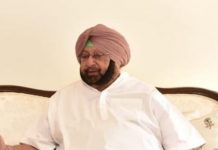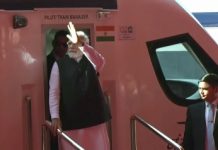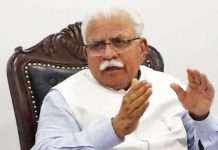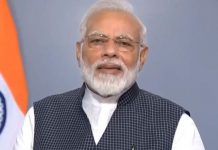Despite the ECI’s stern warning to political parties, Tehelka SIT reveals how agents are willing to provide minor children for poll campaigns in exchange for cash
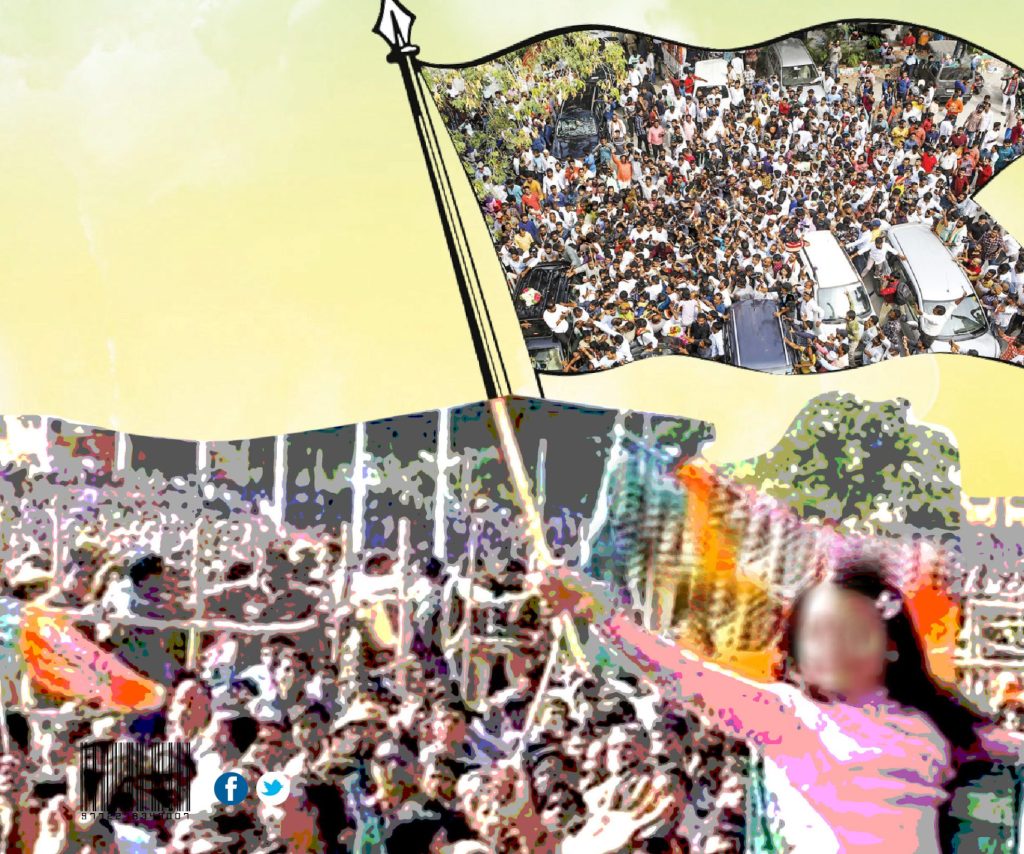
“To conceal minor children from the watchful eyes of the Election Commission, we will avoid bringing them to the forefront of a political rally until the main political figure, who would address the gathering, arrives. Until then, we would accommodate the children in a nearby hotel and bring them out only after the central political figure arrives to raise various political slogans. If we introduce the minor children at the political rally before the arrival of the star campaigner, they will attract the attention of the police and the poll officers, and will also be caught by the camera, thus increasing the likelihood of our detection,” said Murad Ahmed, an agent skilled in providing crowds for political rallies. This time, he promised to supply minor children for the 2024 Lok Sabha poll campaigns for a fee, along with an idea of how to utilize them in the political campaigns without being detected by Election Commission officials, who have imposed a ban on the use of minor children in poll-related activities for the 2024 general elections.
In February of this year, the Election Commission of India (ECI) issued directives to all political parties to refrain from using children in election campaigns, and warned them of the commission’s “zero tolerance” approach to the issue. Political parties were instructed to abstain from involving children in any aspect of election campaigns, including rallies, sloganeering, distribution of posters or pamphlets, or any other election-related activities. Political leaders were prohibited from holding the arms of children or carrying them in vehicles or during rallies. According to the EC, political parties and candidates should ensure strict compliance with the Child Labour (Prohibition & Regulation) Act 1986, as amended by the Child Labour (Prohibition & Regulation) Amendment Act, 2016.
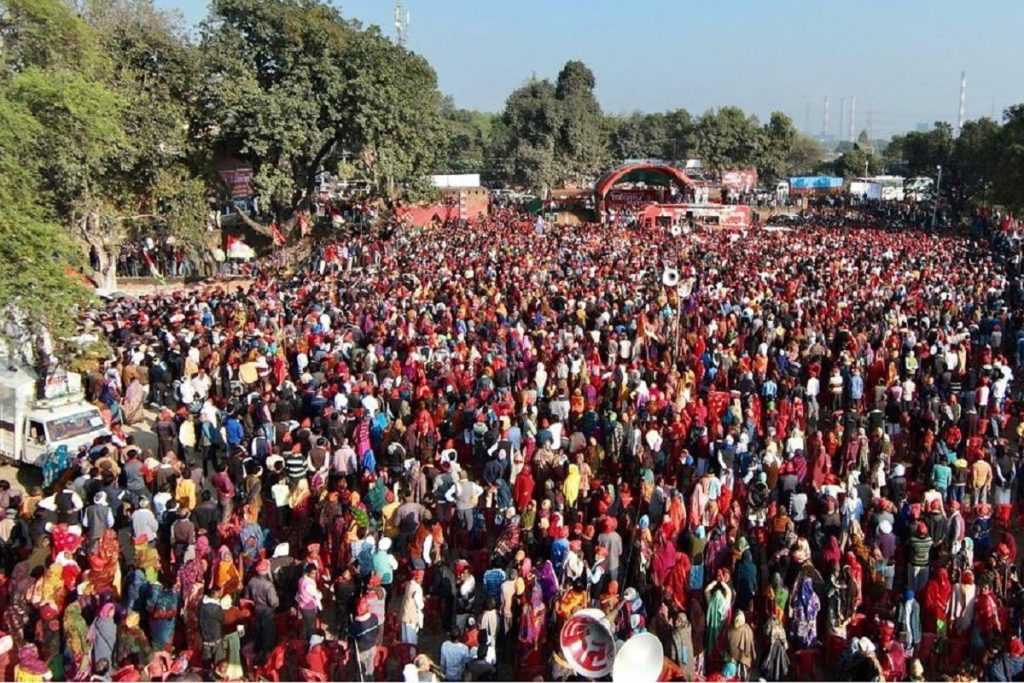
As the Lok Sabha polls draw near, political parties are not leaving any stone unturned to reach out to the voters. Leading up to the elections, there have been reports of children being used in electioneering despite the Election Commission of India imposing a ban on such activities. The Congress recently filed a complaint with the Election Commission against Union Minister Nitin Gadkari and the Bhartiya Janata Party (BJP) for allegedly violating the Model Code of Conduct (MCC).
The Maharashtra Pradesh Congress Committee accused the BJP of disregarding regulations regarding the involvement of children in election-related activities and called for immediate and decisive action against them. The Congress complaint to the Chief Electoral Officer (CEO) stated that the BJP and Union Minister Nitin Gadkari had roped in school children for election campaign purposes. It cited an incident in Nagpur where students were used for a campaign rally on April 1, attaching videos and photographs of the event to underscore its complaint. In another incident in Dharwad, Karnataka, the district administration directed political parties to refrain from involving children in campaigns after observing their use in rural areas. Similar reports had surfaced during the 2018 assembly elections in Rajasthan.
Chief Election Commissioner Rajiv Kumar while announcing the dates for the 2024 General elections recently at a press conference flagged some of the issues which were worrying the Election Commission. “Muscle, money, misinformation and violation of model code of conduct are the four Ms which are posing a daunting challenge to the commission in conducting free and fair elections ,” the Chief Election Commissioner had said.
After Tehelka had carried out its investigation on first “M” i.e. the muscle power in its last edition, we are now going to expose one more “M”: the violation of Model Code of Conduct, in this edition. The report reveals how some agents are helping political parties and candidates in procuring minor children for their poll campaigns.
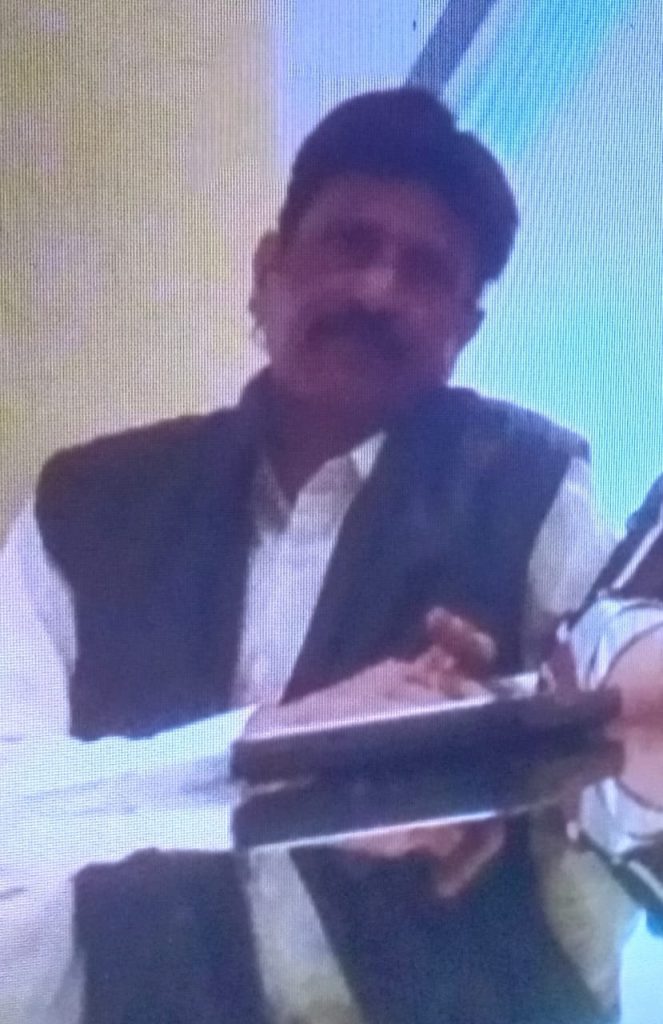
In order to get to the bottom of the issue, we met Murad Ahmed, the main protagonist in this report, in a five star hotel in Delhi. Murad came to meet us with his relative and partner, Mohammed Wajahat Siddiqui. Posing as a fictitious client, we asked Murad to help us in getting minor children for the election rallies to be held by our supposed candidate in Delhi and outside Delhi in the run-up to the 2024 general elections. Murad told us that our work will be done and in order to reassure us on the issue, he boasted that he had organised many such political rallies in Delhi on various occasions in the past.
Reporter- Nahi aisana ho kuchgadbad ho jayebaccheypahuche hi nahi..aapkarchukepehleaisa rally walakaam ?
Murad- Haan..lekin kara hai Lal Qila wale area mein hi…Ramlila ground keanderwahiaaspass..
[Murad’s reassurance to us, when we sought his help in arranging children for a political rally, goes to show how fearlessly the unscrupulous elements—those who rope in children for political rallies—operate while cocking a snook at the EC directive.]
Upon informing Murad that we would pay Rs 500 per child attending our political rally, he remarked that it was significantly less compared to what he arranged for other political rallies. According to Murad, children provided for other political rallies received Rs 1000 per head, along with food packets. Therefore, Murad demanded Rs 2000 per head for the minor children he would send to our political rally.
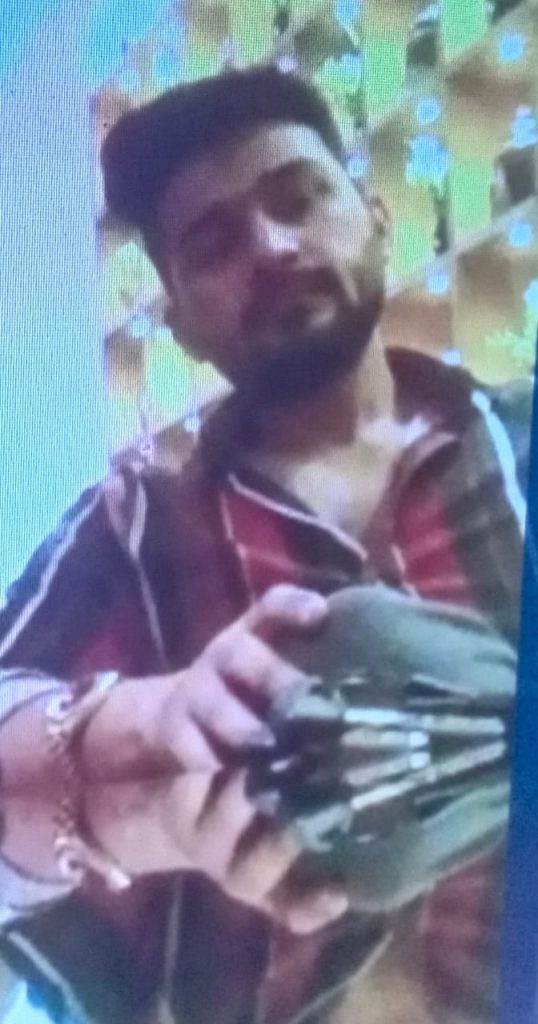
Reporter- 500 rupees ek bacchey..
Wajahat- Acha ye batao Delhi meinhamekahanjanahoga? Kitne time k liyejanahoga ye to batao..?
Reporter- Ek-ek karkebaatkarlein, pehlebatao paise, 500 rupees ek baccha…?
Wajahat- Badon ke..?
Reporter- Badon k hazar…
Murad- Jaise rally aa rahihai Lal kiley, political rally…to unke jo bade hoteyhain, wo humse contact meinrehteyhain…chahe wo kisibhi party k hon…rally aaney se ek ghanta pehle, yaaadhaghanteypehle, anderaaye..humseunka contact rehtatha, ki jab hum kahen, to 20-25 log hamare ko, 1000-1000 rupees to wo de jayakartey they, khana , pani, nashtaalagsirf road par aakartaalibajaney k liye… XXXXX ko to jaanteyhogey…?
Reporter- Ji .
Murad- XXXXXXX-
Reporter- Haan
Murad- Unki bahut rally hui hain, XXXXX ki hui hain, XXXXX ki hui hain…sirf road par chakkerlaganey k, 1000 rupees aur chai, khananashtaalagtha…
Reporter- Acha mere Rs 500 kam lag rahehainaapko…?
Murad- ji
Reporter- To aapbataophirkitna…maine rate bata diyeaap bata do apne..kyon ki wajahatkehrahe they pehleaap bata do apne, mainey bata diye ab aapbatao…
Murad- Choteybachon k unke maa baapbhihai, kam se kam 2000 rupees to honey hi chahiye.
Reporter-Rs 2000 ek baccha…zyadanahihain..?
Murad- Zyada nahihain, dekhiye jab paisa miltahainabacchon ko, to ho saktahai wo Delhi ke bahar bhichalejaaye, 50 kardein 100 bacchey ho jaaye..
Reporter- 100 bacchey?
Murad- Nahi mein ye kehrahahoon, ki aageybhi chances hainkyunkidekhiye…aapne agar Rs 1000 diye, meingayatha, mujhe 1000 rupees diye koi problem nahi, to mere saath aur bhibaccheyaayenge..jinbacchon ko milega paisa, jo aye they .. wo maan lo unkekhalakebaccheybhihain aur bhihain, inheinbhi le jao… yahicheezkheechtihaiapnitaraf…baateinnahikheechti,paisakheechtahai, wo kahengeyhaan le jaoyaar hum aur bhi de dengey.
[Murad’s demand that we pay Rs 2000 per head for the minor child he will send to our political rally reveals how greed is driving the entire operation. His assertion that other parties are paying Rs 1000 per child for rallies, while he haggles with us after we offered him Rs 500 for a fictitious deal, sheds light on the exploitation of children by those with questionable motives during the election.]
As our discussion progressed, Murad proposed that if we paid Rs 2,000 per child for the rally, they would not only attend rallies in Delhi but also extend their participation to rallies beyond Delhi. He argued that the Rs 500 amount we offered per child for the rally was insufficient to attract anyone, as children nowadays typically use such amounts for snacks or mobile recharges. Murad explained that the primary role of children in political rallies was to raise slogans as directed by the political parties.
Reporter- To aap ye kehrahe ho, Rs 2000 ek bachey ka de dein..to wo bahar bhichalejayengey rally keliye..
Murad- Jaa sakteyhain, aur doosricheez…hum unkokehsakteyhaindhaus k saath ki paisa bhi to de rahehain…500 rupees 200 rupees to bacha aajkalcheez kha letahai..Aapnedekhanahikitnimehngaihai…mobile ka recharge hi kara leteyhain…itneitne se bacho k pass to mobile hainaajkal, nabaligbaccho k pass..
Reporter- Lekin aap ye bhi to dekho jo 500 rupees hamne bola usmeinkhanapeenabhi to de rahehainhum..
Murad- Dekhiyekhanapeena to dena hi padtahai..hum waisebhikahinjaatehain, khanapeena to dena hi padtahai..
Reporter- Apne jaisebatayana XXXXXX ki rally mein wo 500 rupiyabaantjatehain to khanathodideteyhonge..
Murad- Paiso k saathnashta, khanabhidiyajatahai, ab jaiseboldiyalalqila par aa jao, snack ke packet bane hoteyhain wo diyejaateyhain, wo lekarbhi aa rahehain, aur kha bhirahehain..ji packet bane hue hoteyhain..
Reporter- Inko karnakyapadtahai..?
Murad- Naarebazi…haihai..kisi k haihaikelaganeyhoteyhainkisike zindabad ke..yahikamhotahai politics mein..
Reporter- Aur batata kaunhainaare..?
Murad- Party batatihai, bhai netajiaayenge to aapko ye kehnahai… agar wo jaye to aapko ye kehnahai, uchalkoodkarnihaiwahi log batatehain.… haihai aur zindabad bas yahi do cheezeinhotihain…
Reporter- Chalo Rs 2000 done kiyeaapkebaccheke, aur batao..
Murad- theekhai..
[Murad attempted to justify the Rs 2000 rate he was demanding for each child attending the rally by arguing that the children would not only attend the rallies in Delhi but would also be going beyond, participating in rallies in neighboring places. His actions seem to treat children as commodities, emphasizing their value in terms of political gain.]
When we mentioned the need for children for rallies both in Delhi and outside Delhi, Murad suggested that it would be beneficial to organize a rally in Delhi first to assess attendance. Based on that, he would determine the number for outstation rallies.
Reporter- Pehle Delhi meinhogi..
Murad- Pehle Dilli meinhogina, to hamebhi response pehlemilega, Delhi keander payment jab milegi, dekhnapadegakyahamekarnahai.. bhai wo bhi to jodengeynaapnesaath..
Reporter- Nahi agar meinpehle bahar ka karwa doon aapsephir..?
Murad- Pehle Delhi ka karwaiye, usseyhameaccha response milega…
Reporter- Nahi Delhi ka election late hai..usseypehle aur bhihai bahar… aur bahar koi bahut door nahihaijaise Delhi se Muradabad..Delhi se Sambhal, Delhi se Amroha..Aligarh.
Wajahat- Time kitnalagega ?
Reporter- Ek raat..Aligarh ho gaya, Meerut ho gaya, Agra ho gaya…aas pass keilakeyhainaisanahihai ki aapko Karnataka jana, Bangalore janahoga..
[We informed Murad about the need for children in both Delhi and beyond. He wanted us to hold the rally in Delhi first. Based on the children’s attendance there, we’ll determine the count for outstation rallies, he said.]
Despite the Election Commission of India’s prohibition on using children in election campaigns, we questioned how they would conceal their involvement. In response, Wajahat assured us that nobody would verify their age through Aadhar cards. Murad suggested using the children only after the main political figure arrived to address the rally, thus avoiding detection by authorities.
Reporter- Ek baat ka dhayanrakhnaChunavaayog ne saaf bola haikebacchon ka istemaalna ho chunav rally mein..
Murad- Chote bacchey ?
Reporter- Haan nabaligbacchey..uskakaisebachavkaroge ki nigahmeinna aa jayekisi ki…
Murad- Policewalehonge, camera lagehongey to nigahmein to aayenge..hum kaisechupadenge…
Wajahat- Wahan koi Aadhar card thodi check karega..umerthodi check karega
Reporter- Haan ye baatbhisahihai.. Koi tareeka to bataoaap to master ho in sab cheezonketareekabatao…
Murad- Tareeka yahihai bhai, un bacchon ko rokkarrakhajaye jab koi badanetaaaye…tab jab naarelagane ho, jhandedikhne ho tab aaye aur phiruskebaadforanhatadiyajayeunko…
Reporter- Ye bhisahihaitareeka..
Murad- Bhai jaise koi hotel hai, wahan par taiyarrahengebacche, jaise hi netajiaayengebacche aa jayenge, pehle se to focus meinrahengebacche…pooch saktahai koi aa saktahaikoi..jis time par netajiaaye, usi time par baccheaaye, aur naarelagayehai- haiya zindabad…lekin wo sab aapkizimedarihogiwahan se hatana aur lana…hum thodikarpayenge.
[Election Commission has read a riot act that children shall not partake in election campaigns. Yet, how will they be concealed during political rallies? Wajahat dismisses age verification, while Murad suggests deploying them only after the main political figure addresses the crowd—keeping them hidden until then, evading watchful eyes. ]
Murad and Wajahat outlined their payment terms, stating that they would require full payment before the rally. They planned to pay 50 percent of the amount to the children beforehand and the remainder after completing the work.
Wajahat- Accha pay jo aapkaroge wo jis din kaamhoga us din karogeyna..?
Reporter- Waiseytareekakyahai..
Wajahat- Nahi paise pehlehamare pass aa jaye, aur kaam khatam hotey hi hum unko paise de dein…
Murad- Hamneunkoaadhe paise de diye aur aadhe hum dengekaamkarnekebaad..to unkobharosabhi ho gaya, khushbhi ho gaye ,paise aa gayeaaj..to kaam wo khushi se karengey..aur bandh bhijayengey.. to tareekayahihotahai..
[According to Murad and Wajahat, they will take the full payment from us before the rally. They will pay 50 percent of the amount to the children before the rally and remaining after the work is done.]
When asked about the tasks the minor children would undertake at the rally, Murad emphasized that it depended on our requirements. Children would engage in activities such as raising slogans, holding banners, placards, etc., as instructed by us, for which they were charging a fee.
Reporter- Bacchon se kyabulwanahai..?
Murad- Wo aapki party bolegi…
Reporter- Zindabad kelagwane
Murad- Zindabad ke ,hai- haike…lagwaneyhain..kaalejhandedikhanahai, banner dikhanahai..jo aapki party boley..paise kisbaatke le rahehain..
[What will the young ones engage in during the rally? In reply, Murad asserted that the outcome hinges upon our choices. The children will chant slogans both in opposition and support. They’ll wield banners, placards, and posters. Ultimately, their actions reflect our desires, and it is for these very actions that they receive compensation.]
Initially, we offered Rs 20,000 each to Murad and Wajahat for one rally as their fee for providing minor children. However, the final settlement escalated to Rs 25,000 per rally.
Reporter- To 20-20 karleteyhaindonoke.?.
Wajahat- Ye to aapkeapnebhaiyonke pass aa rahepaisey..dekh lo
Reporter- To bhai mere pass kahin aur se aa rahehain..
Wajahat- Peeche se demand karwaona?
Reporter- Bhai unkabhi budget hotahainaek..isseyupernahijana bhai bahut kharchahai election mein..
Murad- Wo to haiusmein 20-25 hazarbadhjayengey to unkakyajayega…
Reporter- Chalo 25-25 hazardonoke..theekhai.
[Murad and Wajahat, enticed by the prospect of financial gain, were willing to broker a deal. This transaction, though fictitious, reveals a disturbing underbelly of our society—one where the vulnerability of children is exploited for political ends.]
When inquired about the source of minor children, Murad mentioned that he would bring them from the Jama Masjid area of Delhi, where mostly Muslim children accompany their parents engaged in labour or street vending.
Murad- Ramzan mein to nahihogana, Eid kebaad..?
Reporter- Haan Eid kebaad..Eid se pehlenahi ho sakta..
Murad- Eid kebaad..kyunki Ramzan mein bade bacchey sab apnegharmeinrehnachahteyhain….
Reporter- To saare Muslim hain..?
Murad- Haan zyadatar Muslim hain..
Reporter- Aapkerishtedarhain.?.
Murad- Nahi -nahi…hamarerishtedarmein to jaiyengeybhinahi…
Reporter- Phirkahan se laogeyaap..
Murad- Wo hain sab apnejaanpehchanke..
Reporter- Nahi level kyahogaunka, kuchkaamkarteyhain…
Murad- Kaam karne wale nahi, padhrahehain, chotey schools mein..
Reporter- Unke maa baapkyakarteyhonge ?
Murad- Unke maa baapwahimazdoori…koi kuchlagarahahai koi kuch, dekhiyebhala ho jaye un bacchoka..kuchreripatri wale hain, kuchnaukrikarne wale hain..
Reporter- Aur hain sab wahi Jama Masjid ke ?
Murad- Haan ..Delhi kehain sab.. peeche se chalejahanke ho…magar ab Delhi meinrehteyhain..chahepeeche se Bareilly k ho, kaamwaamkarneaaye ho..
Reporter- Matlab Delhi mein Jama Masjid kehai..
Murad- Haan Jama Masjid, Turakmaan Gate…isi circle meinrehteyhainsaare…
[Murad revealed that the children he was going to recruit for our fictitious rally belonged to the poor sections of society. The parents of these children were laborers, street vendors, and others. Clearly, poverty was compelling some people to involve their children in this illegal work]
As the elections draw near, the sorry state of affairs becomes increasingly evident. The exposé by Tehelka has shed light on a disturbing reality: despite the Election Commission of India’s stern directive for political parties to refrain from using children in election campaigns, there are unscrupulous agents who willingly provide minor children for poll campaigns in exchange for cash. This blatant violation of the model code of conduct not only undermines the integrity of the electoral process but also jeopardizes the well-being of these vulnerable children.
The urgency for action cannot be overstated. The Election Commission and law enforcement agencies must step up their efforts to curb such malpractices. The exploitation of children for political gain is reprehensible. These innocent lives are manipulated, and exposed to risks beyond their comprehension. Also, the model code of conduct serves as the moral compass for political parties during elections. Violations not only erode public trust but also weaken the democratic fabric. It is imperative that the Election Commission takes swift and decisive action against those who flout these guidelines. The revelation by Tehelka underscores the need for accountability. The agents involved must face legal consequences, and political parties must be held responsible for their actions. Only then can we restore faith in the electoral process.








